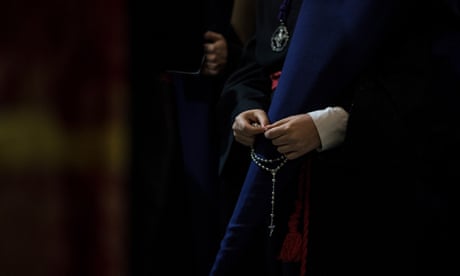- by foxnews
- 03 Feb 2025
Australian Catholic order accused of waiting for paedophile to die and using death to shield it from abuse claims
Australian Catholic order accused of waiting for paedophile to die and using death to shield it from abuse claims
- by theguardian
- 11 Mar 2023
- in news

In 2020, a survivor known by the pseudonym of Mark Peters notified Marist he would be filing a civil claim against the church for failing to stop his abuse at the hands of Cable in 1969 and 1970, despite knowing of other complaints against him as early as 1967.
Cable died behind bars 22 months after Peters notified Marist of his intention to sue.
Nicholas Polin SC, representing Marist, said Cable was a fundamental witness to the alleged abuse.
He said it was reasonable for Marist not to have approached Cable again after the former brother, through his lawyers, told the order that he wanted nothing more to do with them in 2015.
It is not the first time that the church has sought to use the deaths of paedophile clergy to halt civil claims lodged by their victims.
The Guardian has previously revealed that a similar strategy has been adopted more broadly across Catholic dioceses and entities since a landmark ruling in the NSW court of appeal last year, which found the Lismore diocese could not have a fair trial due to the death of a priest, Father Clarence Anderson, who is accused of abusing a 14-year-old girl known only as GLJ.
The GLJ case is being appealed to the high court by her lawyers, Ken Cush and Associates.
But it is already being used as the basis to launch stay applications in similar cases, or threaten to launch stay applications during settlement negotiations. Law firms dealing with abuse claims say their clients are being low-balled in settlement negotiations under the threat of a permanent stay.
The reliance on the deaths of paedophile clergy to stymie abuse claims is at odds, lawyers say, with the intents of parliaments across the country, which removed time limits on historical abuse claims in recognition of the barriers facing survivors.
The child abuse royal commission found the delay in coming forward was, on average, more than 22 years. That makes it common for perpetrators to have died by the time survivors file civil action.
- by foxnews
- descember 09, 2016
Super Bowl 2025 flights, hotels see major price hike ahead of big game
Super Bowl LIX appears to be affecting flight costs and hotel accommodations as Kansas City Chiefs and Philadelphia Eagles fans head to New Orleans, Louisiana, for big game.
read more


